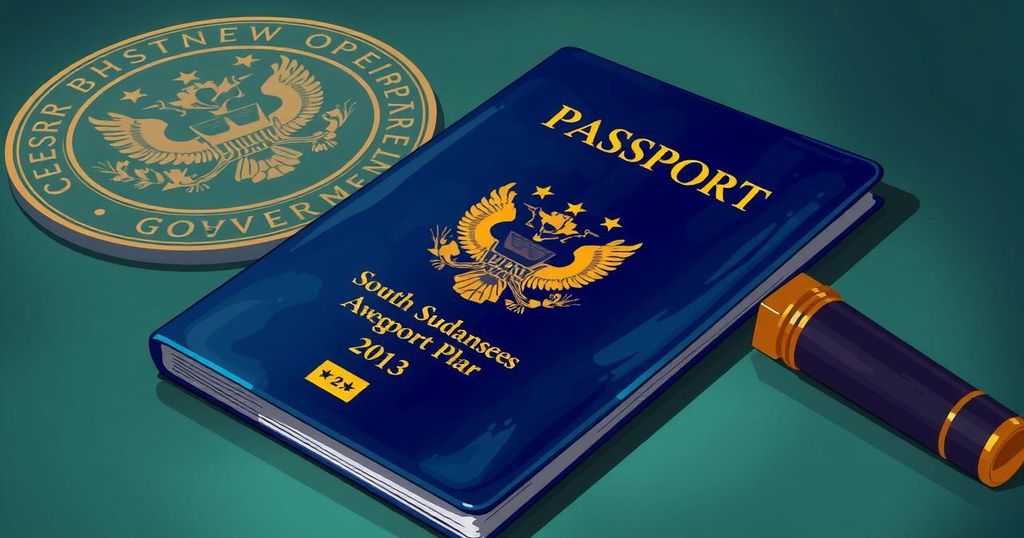Trump Administration Revokes Visas of South Sudanese Amid Deportation Conflicts
The Trump Administration has revoked visas for South Sudan passport holders due to delays in accepting deportees by the South Sudanese government. Secretary Marco Rubio cited the need for restricting further entries until cooperation is established. Legal challenges have been filed by potential deportees, and criticism has emerged regarding the humanitarian impact of these actions.
The Trump Administration has revoked the visas of all South Sudan passport holders due to the transitional government’s failure to accept deportees in a timely manner. Secretary of State Marco Rubio announced this decision, emphasizing the need to restrict future entries of South Sudanese individuals until full cooperation is achieved. He stated, “We will be prepared to review these actions when South Sudan is in full cooperation.” This action mirrors a prior initiative concerning Colombia’s refusal to accept deportees, which led to a swift reversal from Colombian officials.
The revocation of visas represents the Trump administration’s aggressive efforts to expedite the deportation of foreign citizens. These initiatives echo Mr. Trump’s campaign promises to enhance deportation processes. Legal challenges have arisen from several deportees, with temporary restraining orders issued by judges. However, South Sudanese officials did not provide immediate comments on the situation.
Lucas Guttentag, a former Justice Department official, criticized the move as discriminatory and detrimental to innocent visa holders, describing it as a failure to engage in meaningful diplomacy. Furthermore, Mr. Rubio maintained that the visa revocation was justified as some detainees were undermining U.S. foreign policy during protests.
As of late March, Mr. Rubio reported having revoked around 300 visas, actively signing deportation papers. Notably, this includes Óscar Arias Sánchez, former president of Costa Rica and Nobel Peace Prize laureate, who received a notification of his visa suspension shortly after criticizing Mr. Trump’s behavior.
The U.S. has historically encountered obstacles in deporting individuals due to various issues with foreign governments. During the previous Trump administration, sanctions were imposed on non-compliant nations regarding deportees. Contrarily, the Biden administration recently offered temporary protected status for South Sudanese migrants due to ongoing violence in their home country, extending protections until May 2023.
In summary, the Trump administration’s revocation of visas for South Sudan passport holders underscores a significant shift towards aggressive deportation policies. Secretary Marco Rubio’s actions reflect a broader strategy of diplomatic pressure on nations reluctant to cooperate with repatriations. Legal challenges against these policies highlight the complexities involved in mass deportation campaigns, particularly in relation to human rights and international diplomacy.
Original Source: www.nytimes.com




Post Comment